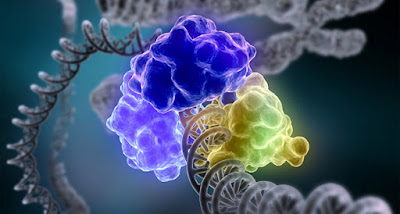Deny to be aged
Networks between the nucleolus and age-related
pathways
The nucleolus is supposed as a basic housekeeper: It's
responsible for generating ribosomal RNA, which is significant for the
synthesis of proteins that are crucial to the vitality of the cell,"
Studies of aging and the
nucleolus have been performed in yeast, worms, fruit flies, mice, as well as
early data in humans experiencing dietary restriction and exercise. Worms are
particularly useful for aging research because they only survive for about a
month, so it's possible to squeeze their genomes and see what extends or
shortens their longivity. Scientists and researchers have seen that common
pathways related to aging eventually affect nucleolar size -- organisms with
enlarged nucleoli have smaller lifespans and those with shrunken nucleoli have
longer lifespans.
Many of these longevity pathways unite on a nucleolar variable
gene called NCL-1. Dietary restriction, slowdown insulin signaling, and other
lifespan-extending interventions increase the activity of NCL-1, reducing
nucleolar size and the formation of ribosomes. Worms missing NCL-1 receive no
age-extending benefits from these therapies. Relatedly, people with diseases
such as cancer or progeria that enhanced aging have inflated nucleoli with enlarged
ribosome biogenesis. It is still unclear why a small nucleolus can extend
lifespan, but it may be linked to matching cellular renewal and repair.
"Within an organism,
within diverse tissues, it's for assured that nucleolar dimension can vary
quite a bit dependent on the metabolic actions of the cells, so for example, in C. elegans, neurons
have very minor nucleoli whereas they are quite large in skin cells or muscle
cells. It turns out that neurons in C.
elegansmaintain their construction well into old age, whereas
muscle cells and skin cells tend to weaken more rapidly in the organism. Thus,
even within a creature unalike tissues have different nucleolar size and it may
replicate different rates of aging."



Comments
Post a Comment